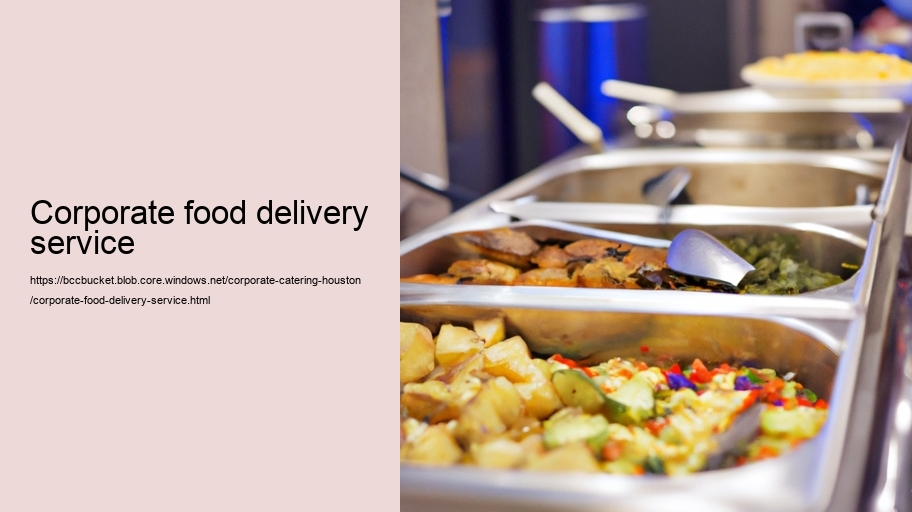The Rise of Corporate Food Delivery Services: A Deliciously Convenient Revolution
In today's fast-paced corporate world, time is an invaluable commodity. As employees become increasingly engrossed in their work, the traditional lunch hour has shrunk to a mere formality for many. Gone are the days when workers would leisurely stroll to nearby eateries or sit down at communal tables to savor home-cooked meals. Enter the era of corporate food delivery services – a revolution that has transformed the way businesses think about meal times and employee sustenance.
Corporate food delivery services have burgeoned into a significant industry thanks to the symbiotic relationship between technological advancements and changing workplace dynamics. The proliferation of smartphones and apps, coupled with high-speed internet connectivity, has laid the foundation for these services to thrive. Meanwhile, companies recognize that well-fed employees are happy and productive ones; thus they are ever more willing to integrate such conveniences into their operational frameworks.
What exactly is a corporate food delivery service? Simply put, it's a specialized platform that allows businesses to order meals from local restaurants or catering companies directly to their offices. This service caters not only to individual lunch orders but also to team meetings, client gatherings, company-wide events, and any occasion requiring quality food without stepping out of the workplace.
The advantages of utilizing corporate food delivery services are manifold. First and foremost is convenience. Employees no longer need to spend precious time queuing at cafes or worrying about preparing lunches before work. With just a few clicks on their computers or taps on their phones, they can have a variety of cuisines delivered straight to their desks at specified times.
Secondly, there's the aspect of choice and variety. Unlike static canteens or limited nearby options, corporate food delivery platforms often collaborate with an array of culinary establishments ranging from gourmet restaurants to wholesome local delis. This ensures that every dietary preference and craving can be catered for—be it vegan salads or gluten-free sandwiches; spicy curries or comforting pastas.
Health and nutrition play crucial roles as well. Modern-day workers are increasingly health-conscious, seeking balanced diets that fuel productivity without compromising on taste or nutritional value. Corporate food delivery services often provide detailed information about menu items including calorie counts and ingredient lists which empowers employees with informed choices about what they eat during work hours.
On an organizational level, providing access to easy meal solutions can also be seen as part of a company’s wellness initiatives – showing commitment towards staff wellbeing which can boost morale and aid in retention efforts.
Furthermore, these services streamline billing processes by consolidating company-wide orders into single invoices simplifying expense tracking while potentially securing bulk discounts—a welcome benefit for any business’s bottom line.
Despite its numerous benefits however this convenient system does not come without its challenges particularly around environmental concerns such as packaging waste sustainability sourcing practices amongst others - issues which many forward-thinking providers actively address through eco-friendly materials recycling programs partnerships with responsible vendors alike demonstrating that it possible balance convenience conscience effectively within space.
As we look ahead future appears bright for corporate food delivery sector Innovations like drone technology AI-powered recommendations even integration vertical farming operations hint tantalizing possibilities far beyond simple drop-off delicious meals And so long as desire ease efficiency remains paramount within modern workplaces demand these delectable deliveries surely continue rise meeting hunger success one order at time
